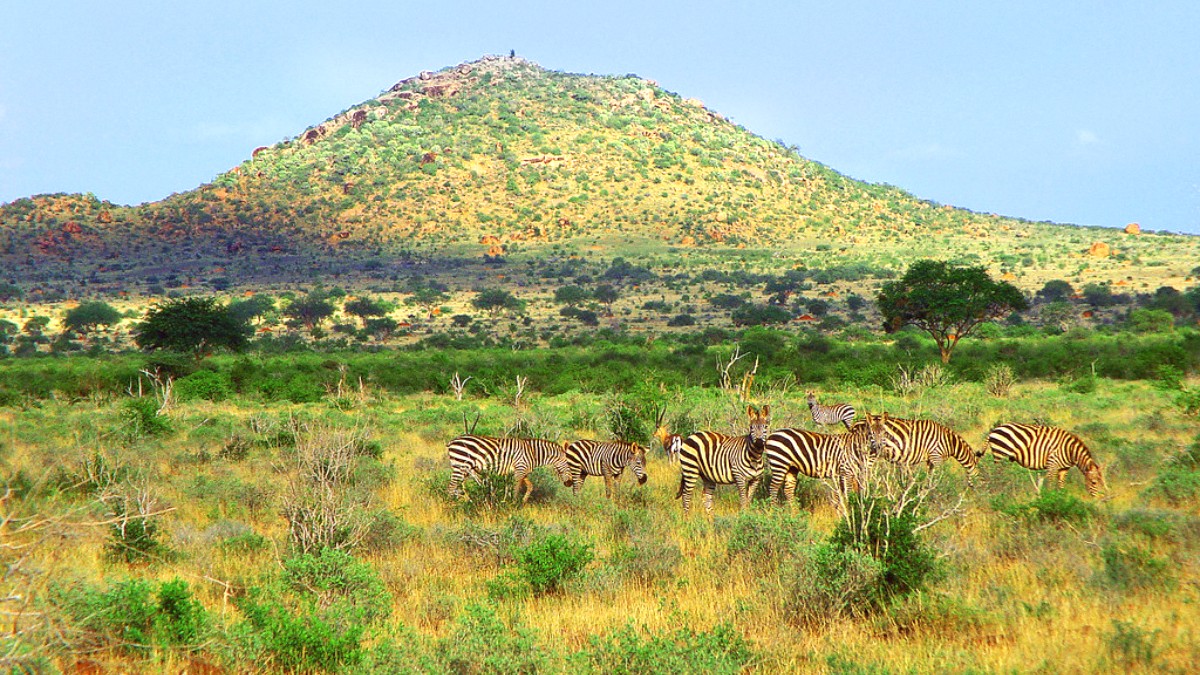
Kenya
The Maasai Mara National Reserve is a world-renowned wildlife conservancy in southwestern Kenya. It connects directly with Tanzania's Serengeti National Park, forming one vast ecosystem.
The reserve gains fame for its exceptional populations of lions, leopards, and cheetahs, and, most notably, for hosting the annual Great Migration. Its name comes from the Maasai people and the Mara River. It represents a long history of conservation efforts and a partnership with Maasai communities through surrounding conservancies.
The focus remains on the living, breathing ecosystem.
These forests line the Mara River and its tributaries, habitat for leopards, elephants, and diverse birdlife.
Patches of marshland within the reserve provide wet habitat for hippos, crocodiles, and water-dependent bird species.
The broader Great Rift Valley runs through Kenya, and the Maasai Mara sits on part of its western floor.
Early morning (6:30 AM - 9:30 AM) and late afternoon (4:00 PM - 6:00 PM) when animals are more active.
Requires patience. Your guide will know likely crossing points.
While the entire Maasai Mara offers incredible experiences, some "hidden gems" provide a more exclusive or unique perspective.
Offer a more exclusive safari experience compared to the main reserve.
Lower vehicle densities and stricter limits per sighting for more intimate encounters.
Often off-road driving is possible for closer views (not permitted in main reserve).
Available exclusively in private conservancies, with armed rangers and Maasai guides.
Also offered only in private conservancies, using spotlights to find nocturnal animals.
These activities offer a personalized engagement with the wilderness, beyond standard game drives.
Offer a more exclusive safari compared to the main reserve, with fewer vehicles allowed per sighting.
Immersive experience on foot, always with armed rangers and knowledgeable Maasai guides.
Unique opportunity offered only in private conservancies to find nocturnal animals after sunset.
These activities offer a personalized engagement with the Maasai Mara's wilderness, moving beyond the standard game drive experience.
Information for a smooth visit to the Maasai Mara.
Accessible options and safety measures for visitors.
July to October is high season, considered excellent for wildlife viewing.
Travel during low or shoulder season for more competitive rates and fewer crowds.
Patience is for Mara River crossings during the Great Migration season.
Animals can wait for hours before attempting to cross the river. Be prepared for extended waits.
Your guide will help position your vehicle at likely crossing points for the best view.
The raw, powerful display of nature during a crossing is truly remarkable.
Lightweight clothing, hat, sunscreen, insect repellent, and comfortable walking shoes are good to pack.
Find Safari Packing ListsConsult your doctor about necessary vaccinations (e.g., Yellow Fever) and malaria prophylaxis.
WHO Vaccine InformationKenyan Shilling (KES) is the local currency. US Dollars are widely accepted in tourist areas and camps.
Some camps offer Wi-Fi, but connectivity can be limited. Consider a local SIM card for better mobile data.
Keep a respectful distance from animals, avoid loud noises, and never feed wildlife. Follow your guide's directions.
Plan your safari activities in advance, especially during peak season.
Support local communities and minimize your environmental footprint.
A knowledgeable guide makes your wildlife viewing and overall safari experience better. Research your preferred camp's reputation for guides.
For Mara River crossings, patience makes a difference. Position your vehicle strategically with your guide and prepare to wait; the reward is truly remarkable.
Your safety and respectful interaction with the environment are important.
Always prioritize safety around wildlife. Your guide is your main safety resource.
Help preserve the Maasai Mara for future generations.
Protect your health during your safari.
Travel insurance with medical evacuation coverage is highly recommended.
Support and learn from local Maasai communities.
Ensure your safari experience is sustainable and ethical.
The well-being of the wildlife always comes first.
In case of emergencies, contact your safari guide or camp management immediately. They have established protocols for assistance.
Your safari operator maintains contact with local park authorities and emergency response teams for situations needing intervention.
Keep your country's embassy or consulate contact information handy, especially for severe incidents or lost documents.